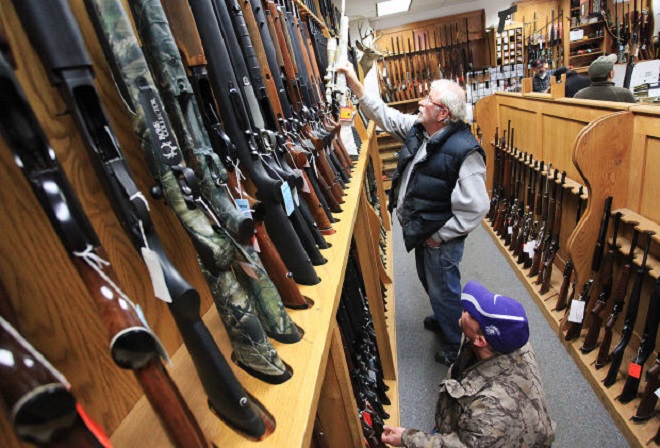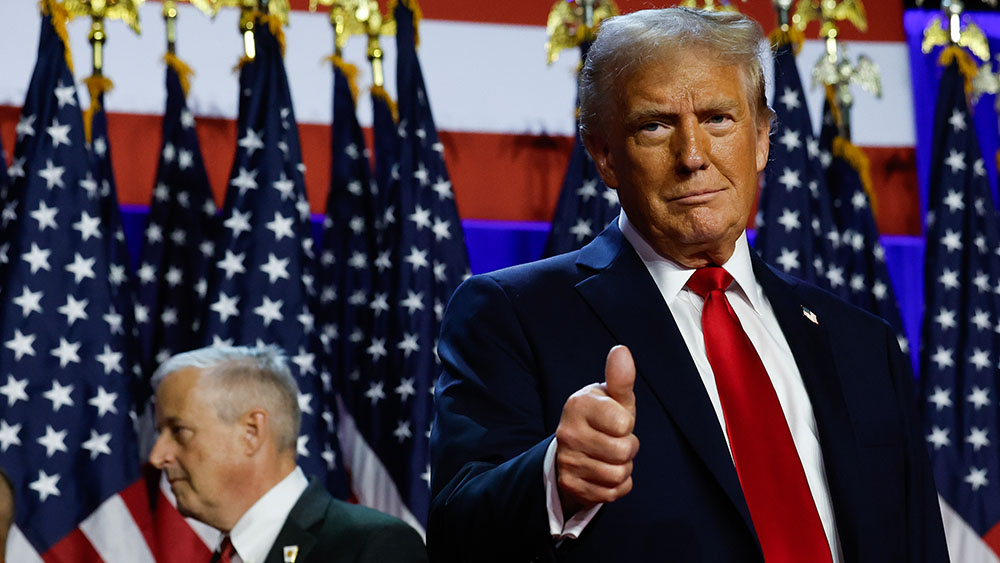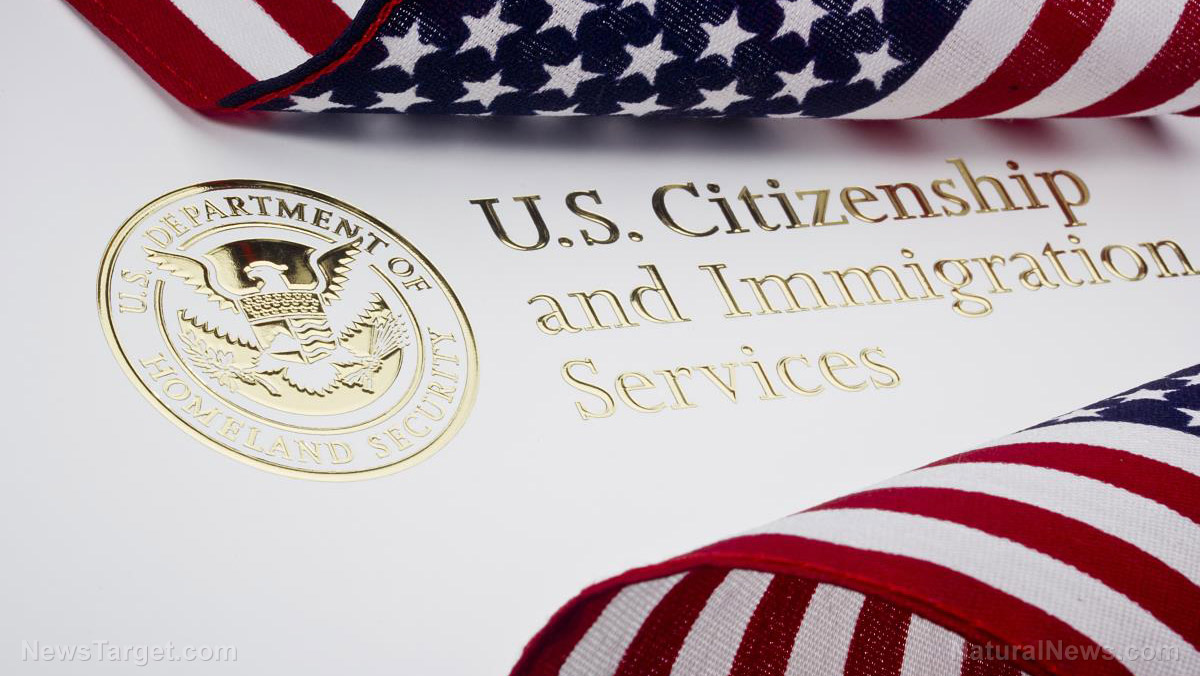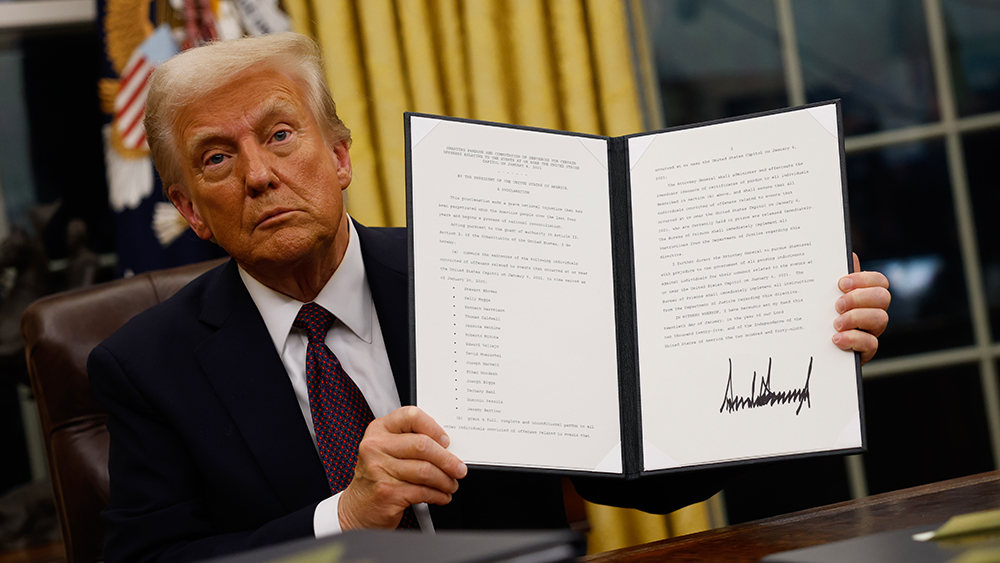New York governor signs controversial gun control measure, sparking Second Amendment concerns
04/08/2025 / By Willow Tohi

- Governor Kathy Hochul signed legislation (S745/A439) requiring credit card companies to use a new merchant category code (MCC) to track firearm and ammunition purchases, aiming to flag suspicious transactions.
- Supporters, like NY AG Letitia James and Assemblymember Michaelle Solages, argue this helps prevent gun violence by monitoring purchases. Opponents, like gun rights advocate Larry Keane, see it as an unconstitutional de facto gun registry.
- Hochul claims the measures prioritize public safety, giving law enforcement tools to curb gun violence. Critics counter that it infringes on Second Amendment rights without effectively distinguishing legal from illegal purchases.
- Visa’s CEO highlights limitations, noting MCCs track store visits but not specific items purchased — raising concerns about false flags and privacy violations for lawful gun owners.
- The move reflects ongoing national tensions over gun control after recent Supreme Court rulings (e.g., Bruen), with blue states pushing stricter laws and red states resisting. Financial institutions’ role in regulation remains contentious.
New York Governor Kathy Hochul signed a series of gun control measures into law on April 3, including a bill that requires credit card companies to track firearm and ammunition sales using a new merchant category code (MCC). The move, which has been praised by gun control advocates and criticized by Second Amendment supporters, marks a significant step in the ongoing debate over gun rights and public safety.
The legislation, S745/A439, mandates that credit card companies use a specific MCC for firearm retailers, allowing for the monitoring of transactions at these stores. This tracking mechanism is intended to help law enforcement identify “suspicious” purchases, potentially flagging individuals who are stockpiling firearms or ammunition. However, critics argue that the new code will create a de facto gun registry, infringing on the constitutional rights of law-abiding citizens.
A step toward gun control or a violation of the Second Amendment?
Governor Hochul defended the new measures, stating, “We’re taking action to drive down gun violence in the State of New York — protecting our communities and making our streets safer. Public safety is my number one priority, and by giving law enforcement additional tools to stop gun violence in its tracks, we’re building on our promise to put the safety of New Yorkers first.”
Democratic Assemblymember Michaelle Solages, the Assembly sponsor of the bill, echoed the governor’s sentiments, saying, “By requiring the use of merchant category codes for firearm and ammunition purchases, we are equipping financial institutions with a critical tool to help detect suspicious activity before it becomes a tragedy.”
However, the legislation has drawn sharp criticism from gun rights advocates. Larry Keane, a prominent conservative journalist and gun rights advocate, argues that the new MCC is a thinly veiled attempt to create a gun registry, which he believes is a clear violation of the Second Amendment. “This is not about public safety; it’s about control,” Keane said. “The government is using financial institutions to monitor the lawful activities of law-abiding citizens, which is a dangerous precedent.”
The ongoing battle over gun rights
The debate over gun control in the United States is deeply rooted in the nation’s history and the interpretation of the Second Amendment. The amendment, ratified in 1791, guarantees the right of the people to keep and bear arms. Over the years, this right has been the subject of numerous legal battles, with the Supreme Court playing a crucial role in defining its scope.
In 2022, the Supreme Court’s decision in New York State Rifle & Pistol Association Inc. v. Bruen struck down New York’s restrictive concealed carry law, reinforcing the individual right to bear arms outside the home. This decision was a significant victory for gun rights advocates but also intensified the push for new gun control measures at the state level.
New York, already known for its strict gun laws, has been at the forefront of this push. Governor Hochul’s recent actions are part of a broader trend among Democratic governors, including California’s Gavin Newsom and Colorado’s Jared Polis, who have implemented similar measures. These efforts have been met with resistance from states with more conservative leadership, where governors have taken steps to protect the Second Amendment rights of their citizens.
The role of financial institutions in gun control
The involvement of financial institutions in gun control efforts is a relatively new and controversial development. The idea of using MCCs to track gun and ammunition sales was first proposed a few years ago by New York Times columnist Andrew Ross Sorkin and Amalgamated Bank President and CEO Priscilla Sims Brown. The concept gained traction among gun control activists, who argue that it can help prevent illegal gun sales and reduce gun violence.
However, credit card companies and banks have expressed skepticism about the effectiveness of the MCC. Visa CEO Al Kelly has stated that the code does not provide the level of detail needed to distinguish between lawful and unlawful purchases. “If K.C. Kavanagh goes into a gun store and buys three thermoses and a tent, and you go in and buy a rifle and five rounds of ammunition, all I know is you both went to the same gun store,” Kelly said. “But I don’t know what you bought.”
This lack of specificity has led to concerns that the MCC could result in the wrongful flagging of lawful transactions, potentially placing law-abiding gun owners on watchlists or even the government’s “No Fly” list. The American Bankers Association and other financial industry groups have also raised privacy concerns, arguing that the MCC could be used to compile detailed purchase histories that could be exploited for political purposes.
The signing of the new gun control measures in New York by Governor Hochul represents a significant escalation in the ongoing battle over gun rights and public safety. While proponents argue that the MCC will help law enforcement identify potential threats, critics contend that it is an overreach of government power that violates the Second Amendment. As the debate continues, the actions of New York and other states will likely influence the broader national conversation on gun control and the role of financial institutions in regulating firearms. The upcoming election in November will be a critical test of whether the American public supports these measures or views them as an infringement on their constitutional rights.
Sources include:
Submit a correction >>
Tagged Under:
big government, cancel Democrats, constitutional, fascism, financial institutions, freedom, gun control, gun registry, gun rights, gun violence, Kathy Hochul, left cult, Liberty, New York, outrage, patriot, police state, privacy watch, Second Amendment, surveillance, Tyranny
This article may contain statements that reflect the opinion of the author
RECENT NEWS & ARTICLES
COPYRIGHT © 2017 BIG GOVERNMENT NEWS





















